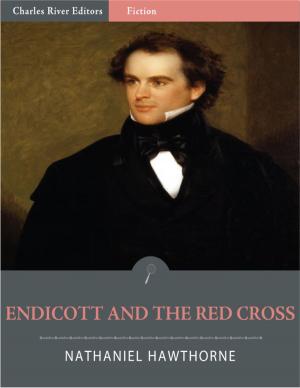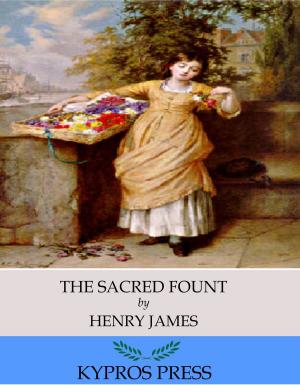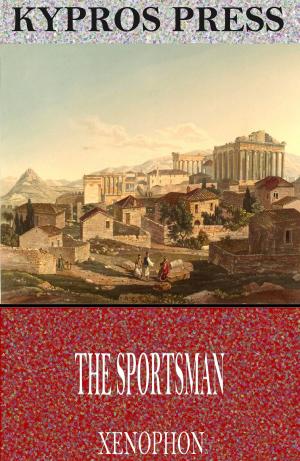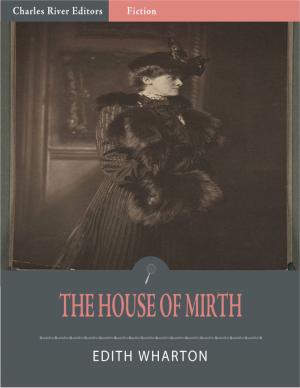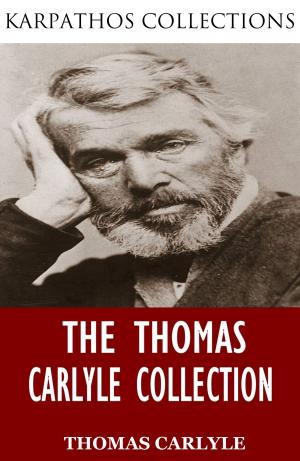| Author: | Charles River Editors | ISBN: | 9781475321876 |
| Publisher: | Charles River Editors | Publication: | February 20, 2013 |
| Imprint: | Language: | English |
| Author: | Charles River Editors |
| ISBN: | 9781475321876 |
| Publisher: | Charles River Editors |
| Publication: | February 20, 2013 |
| Imprint: | |
| Language: | English |
*Includes pictures of Austen and important people, places, and events in her life.*Includes quotes about Austen and her novels by some of her most famous contemporaries.*Includes a Bibliography of Austen's works and works about her. *Includes a Table of Contents. “Which brings us again, after this long way about, to Jane Austen and her novels, and that troublesome question about them. She was great and they were beautiful, because she and they were honest, and dealt with nature nearly a hundred years ago as realism deals with it to-day. Realism is nothing more and nothing less than the truthful treatment of material, and Jane Austen was the first and the last of the English novelists to treat material with entire truthfulness. Because she did this, she remains the most artistic of the English novelists, and alone worthy to be matched with the great Scandinavian and Slavic and Latin artists.” William Dean HowellsAs has happened with many of historys greatest writers, Jane Austen (1775-1817) did not earn the credit she was due until well after her death. Austen was an English novelist whose works of romantic fiction, set among the landed gentry, has earned her a place as one of the most widely read writers in English literature over the last 150 years. Austens romantic fiction was an interesting genre that belied the fact her writing was laden with realism and a scathing critique on society and the role women played in it during her life. Austen tried several different types of literary styles before settling on writing novels from 1811-1817, releasing Sense and Sensibility (1811), Mansfield Park (1814) and Emma (1816). The novels highlighted the dependence of women on marrying high to reach a better social status and financial security, but given the controversial nature of her topics and her writing, there was a strong debate in the 19th century over the merits of Jane's writing and her works. While some like Sir Walter Scott praised her writing, others like Charlotte Bronte thought poorly of it. British Legends: The Life and Legacy of Jane Austen looks at the life, works, and influence the famous British novelist had over her contemporaries and successors. Along with pictures of important people and places, you will learn about Jane Austen like you never have before, in no time at all.
*Includes pictures of Austen and important people, places, and events in her life.*Includes quotes about Austen and her novels by some of her most famous contemporaries.*Includes a Bibliography of Austen's works and works about her. *Includes a Table of Contents. “Which brings us again, after this long way about, to Jane Austen and her novels, and that troublesome question about them. She was great and they were beautiful, because she and they were honest, and dealt with nature nearly a hundred years ago as realism deals with it to-day. Realism is nothing more and nothing less than the truthful treatment of material, and Jane Austen was the first and the last of the English novelists to treat material with entire truthfulness. Because she did this, she remains the most artistic of the English novelists, and alone worthy to be matched with the great Scandinavian and Slavic and Latin artists.” William Dean HowellsAs has happened with many of historys greatest writers, Jane Austen (1775-1817) did not earn the credit she was due until well after her death. Austen was an English novelist whose works of romantic fiction, set among the landed gentry, has earned her a place as one of the most widely read writers in English literature over the last 150 years. Austens romantic fiction was an interesting genre that belied the fact her writing was laden with realism and a scathing critique on society and the role women played in it during her life. Austen tried several different types of literary styles before settling on writing novels from 1811-1817, releasing Sense and Sensibility (1811), Mansfield Park (1814) and Emma (1816). The novels highlighted the dependence of women on marrying high to reach a better social status and financial security, but given the controversial nature of her topics and her writing, there was a strong debate in the 19th century over the merits of Jane's writing and her works. While some like Sir Walter Scott praised her writing, others like Charlotte Bronte thought poorly of it. British Legends: The Life and Legacy of Jane Austen looks at the life, works, and influence the famous British novelist had over her contemporaries and successors. Along with pictures of important people and places, you will learn about Jane Austen like you never have before, in no time at all.


